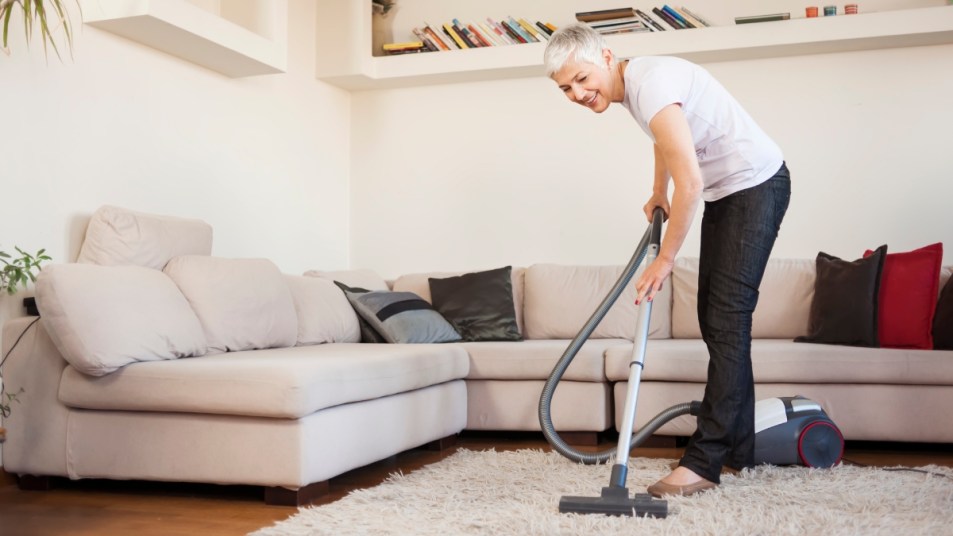Doing Housework Is Actually Good for Your Health — Here’s Why

Which is your most dreaded household chore? Whether it’s mopping the floor, folding laundry, or scrubbing the tub, getting motivated to tackle your least favorite to-do list items can take as long as the actual tasks! But maybe this piece of news will help: Doing housework can improve memory, boost attentiveness, and give you strength to protect you from falls.
That’s the buzz from the BMJ Open, which recently published the findings of a study in which researchers from Singapore explored the relationship between housework and health. Previous studies have already shown that exercise can improve a person’s memory and attention — however, this was one of the first studies to test the relationship between housework and cognitive function.
To test out their theory, researchers recruited 249 adults between the ages of 21 and 64, and 240 adults between 65 and 90 years old. Participants completed questionnaires asking how much housework they did, and how often — things like laundry, ironing, and cooking meals — and how much recreational physical activity, such as biking and walking, they regularly engaged in.
Next, the team evaluated each participant’s cognitive performance and physical function. The cognitive test measured how quickly individuals could recall a memory and how long their attention lasted. For the physical assessment, researchers tested the participants’ balance, gait, and how quickly they could move from sitting to standing.
How Housework Improves Memory
Looking at the data, the team found that 61 percent of younger adults and 66 percent of older adults got their exercise just from doing housework, while about 36 percent of the younger adults and 48 percent of the older adults got their exercise solely through recreational activities. (Someone else must have been doing the housework for them!)
After adjusting the data to take into account factors such as biological sex, height, and educational level, the team found that the more housework they did, the better the older adults scored on both cognitive and physical tests. In fact, heavy housework (think window cleaning, vacuuming, mopping, and painting) was linked to a 14 percent higher attention score, while light housework (simple dusting, making the bed, folding laundry) was linked to a 12 percent higher score on memory recall. In addition, housework reduced sit-to-stand time and improved the strength of older adults.
Interestingly, younger adults who performed similar levels of housework didn’t experience any significant improvements in their cognition and physical tests. As noted by the research team, this may be because younger adults in Singapore tend to have higher educational levels and better physical function simply due to their age.
Why might housework improve memory? For one thing, cleaning house — much as you might find it a boring chore — is more mentally stimulating than watching TV. If you’re painting the walls a different color, for example, you’re training your motor skills, coordination, concentration, and memory. Exercise also improves blood flow to the brain and boosts oxygen levels in the body.
So, what’s the takeaway? Stop putting off that big house project! Accomplish three things – mental activity, physical activity, and housework – for the price of one. I guess I’ll have to take that advice myself. It’s time for me to finally donate all the old clothes and shoes at the back of my closet!












